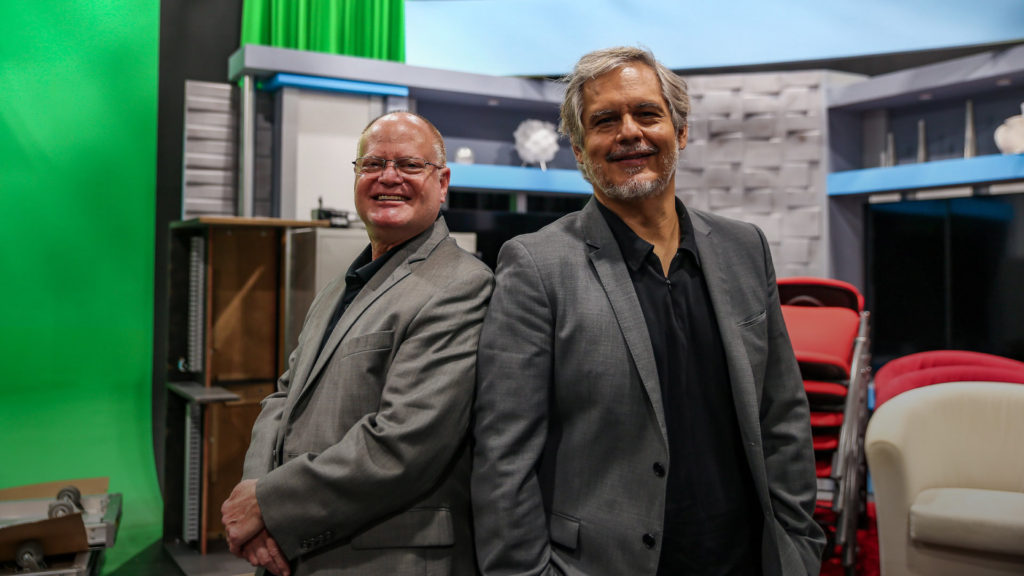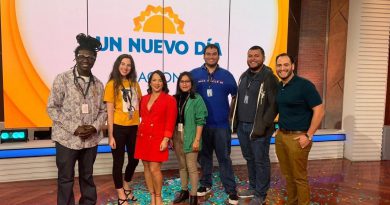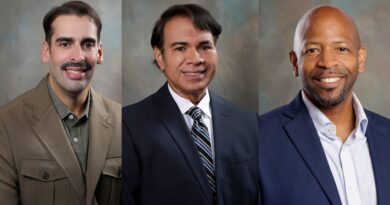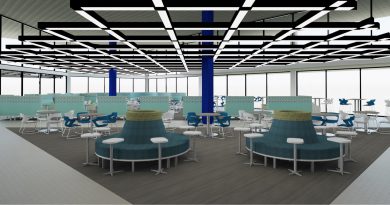SEDT Television Studio Getting $850,000 Facelift
The television studio at North Campus, used by students at the School of Entertainment & Design Technology, is getting a $850,000 facelift, according to the department’s chairperson Barry Gordon.
Renovations will consist of new switchboards in the control room, allowing several recordings to be done at once, and new high-tech green screen technology that includes a light-up feature that works as a pointer when people move their hands in front of the screen.
In addition, new ultra-high-definition cameras that move on a smooth camera rail will be installed with modern teleprompters, new monitors, improved soundproof walls, an updated audio booth and control room and fresh carpeting.
“I’m looking forward to working with the new boards and everything else this upcoming school year,” said O’Knegi Holness, an SEDT student working toward a bachelor of applied science in film, television and digital production degree. “My classmates and I really enjoyed the equipment in the studio, so the improvements will make it even better.”
The goal, Gordon said, is to provide students with state-of-the-art technology so when they enter the workforce they are prepared.
“[The improvements] would better prepare them for gainful employment in the field,” Gordon said. “We teach activity. We don’t graduate students to be television critics.”
Although the television studio is part of the SEDT program, it’s also used by other College entities to record shows.
MDC-TV, the College’s broadcast station, typically records six to 10 shows a month in SEDT’s television studio, said Executive Director and Senior Producer Ariel Rubalcava. Some of those shows include Business World and several episodes of The Talk with James Pierre.
But the bulk of the work done at the television studio is performed by SEDT students. They train on equipment, record news shows, learn how to create three-camera productions and use green screen technology.
However, because the studio has been undergoing remodeling, students have attended virtual classes at Univision to learn the behind-the-scenes techniques needed to operate a TV studio. Students have also attended panel discussions with high-level executives from the network and interacted with the TV production crew.
The television studio’s makeover is being funded by the Perkins V grant, a monetary opportunity to expand career and technical education programs.
Diversified, Inc.—a company that works on highly technically complex projects—began remodeling about a year and a half ago but stopped during the first few months of the pandemic. The work was resumed after the College moved to phase two of its reopening plan this past September.
The renovations are expected to be complete in October, Gordon said. The studio has been remodeled three previous times to keep up with evolving technology. They have switched from analog to digital and then to HD Digital.
“The upgrades done to our studio will reflect some of the latest trends used by local TV stations,” Rubalcava said. “Our students will learn using the same technology used by local media professionals in the industry.”




